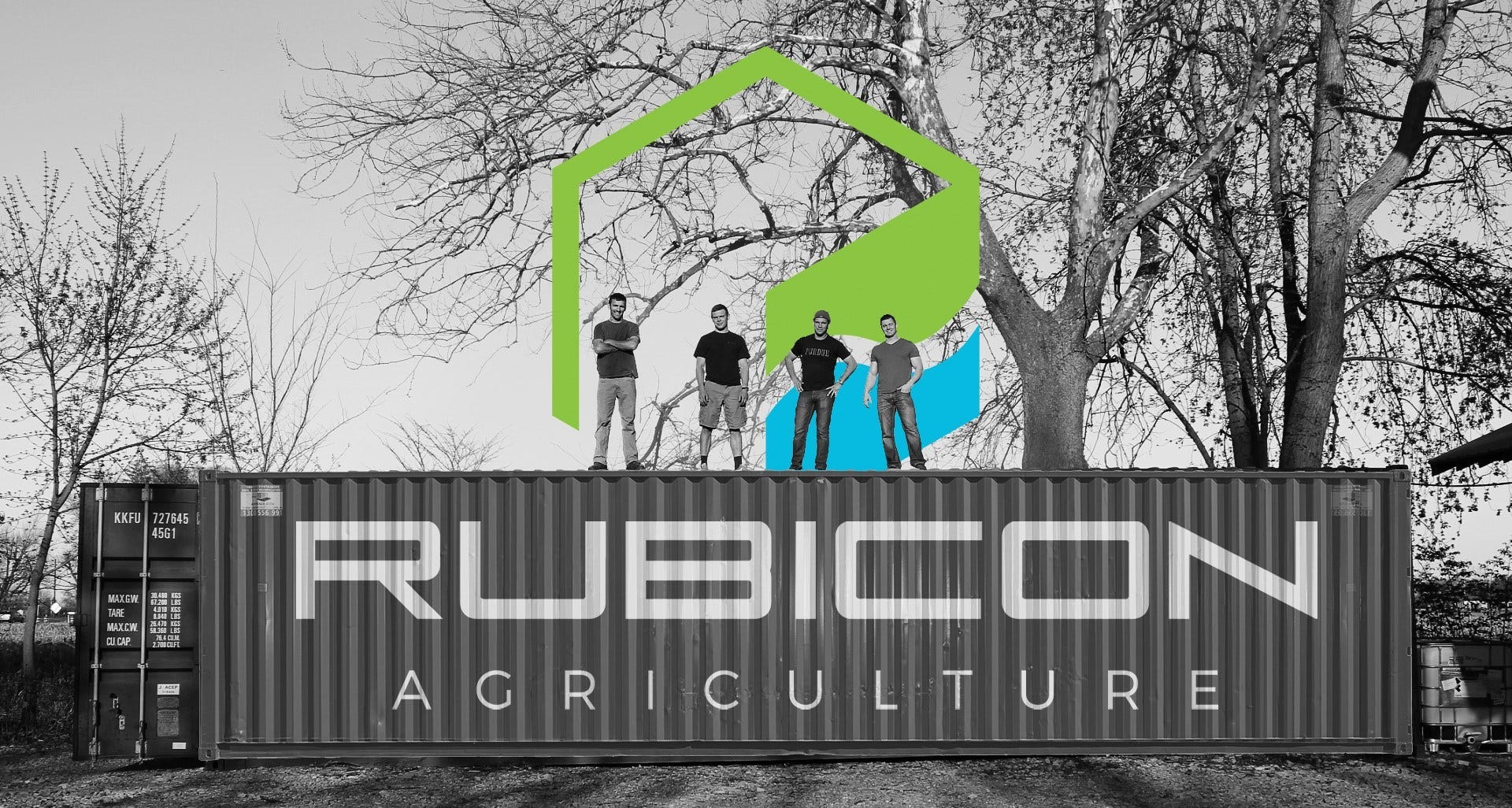Rubicon Revamps Shipping Containers, Redefining ‘Farm to Plate’
 Rubicon currently sells three AgroBoxes variations: the MAX Grow to grow as much produce as possible
Rubicon currently sells three AgroBoxes variations: the MAX Grow to grow as much produce as possible
Subscriber Benefit
As a subscriber you can listen to articles at work, in the car, or while you work out. Subscribe NowHydroponics—growing plants without soil—isn’t a new concept. But converting that method to grow an acre’s worth of fresh produce inside a 40-foot shipping container with “God-like” control over temperature, light and pH—that is new, and it’s the mind-boggling capability of Greenfield-based Rubicon Agriculture. The young company, created by several recent Purdue University grads and a young Navy veteran, believes its AgroBoxes are the future of produce and a piece of the solution for food deserts.
Rubicon Chief Executive Officer Chris Moorman says the average American meal travels more than 1,500 miles from farm to plate, with California supplying about 50 percent of all produce consumed in the U.S. The irony of upcycling used shipping containers to grow “hyperlocal” produce isn’t lost on Moorman.
“We’re taking something that has been bringing food to you in a more traditional sense and putting it back to work to grow food right there in your local neighborhood,” says Moorman.
Headquartered in a family barn just east of Marion County, Rubicon purchases the refrigerated shipping containers—after dozens of trips across the ocean—from an Illinois company for pennies on the dollar. Moorman says the containers are “a phenomenal shell” to unleash the power of hydroponics.
“The AgroBox is, essentially, an artificially-lit greenhouse in a box that uses only water, instead of dirt,” says Moorman. “Roots growing in soil have to go through a lot of things they don’t necessarily need to find the nutrients they do. Hydroponics allows those roots to grow directly into nutrient-rich water and pull out exactly what they need with minimal influence.”
Floor-to-ceiling tiered shelving accommodates 2,500 “plant spots” that Moorman says can grow an acre’s worth of produce that’s “beyond” organic: no chemicals, pesticides or herbicides. Requiring only a water and electrical hookup, the AgroBox—costing about $75,000—is equipped with LED lights, an HVAC system for climate control and a hydration system that recirculates water, using about 10 percent of what traditional agriculture demands. The result is year-round production with faster-growing cycles.
“When you grow a plant outside, you’re destined to the vagaries of the weather; when you grow it in an AgroBox, you really do have almost God-like control over the entire environment,” says Moorman. “We know the inputs, we control the inputs, and therefore, we understand the outputs.”
That power is realized through the company’s Integrated Control System, the automated command center for the AgroBox. State of the art sensors monitor and regulate things like temperature, pH balance, light spectrum and wavelength, carbon dioxide and nutrient delivery.
The company is currently focusing on predictably-growing plants, such as leafy greens and herbs. Moorman says a head of lettuce grown in the field takes about 62 days, but only 25 in the AgroBox.
Rubicon believes, initially, its sweet spot in the market is battling food deserts, which the U.S. Department of Agriculture defines as low-income communities where at least 33 percent of the population—many without a car—live more than a mile from a grocery store.
“Think of 38th Street in Indianapolis; essentially, the only options for a lot of people are, ‘I can go to McDonalds,’ or, ‘I can go to Speedway and get something that’s been rolling on a roller,’” says Moorman. “It doesn’t make economic sense for a Marsh or Kroger to go into those areas—that’s what’s led to these food deserts: major grocers pulling out because of profit concerns.”
Rubicon believes an AgroBox in such communities would supply food, while also creating jobs and battling obesity.
“We’re talking with community centers in Indy about [the AgroBox] putting high school kids to work with after-school jobs and having upscale restaurants use some of that produce to break even economically, and distributing the rest through traditional food banks,” says Moorman. “We think that’s a really powerful option. You can’t do that in any other form of urban agriculture except ours.”
Other potential markets include plant-manufactured pharmaceuticals and university research facilities. Moorman says Rubicon recently sold its first AgroBox to a high school in Omaha “with one of the most innovative K-12 urban ag programs in the nation.”
With friends, family and two seasoned investors footing the bill so far, the company is hoping to raise $500,000 and keep the operation funded by Hoosiers through the Indiana Venture Capital Tax Credit, an incentive for investors to support early stage startups in the state.
Boosted by the growing “eat local” movement, Rubicon believes it’s “cultivating communities” by harnessing the power of technology to feed food deserts and consumers hungry for a fresh alternative.
Moorman says Rubicon sold its first AgroBox to a high school in urban Omaha.
Moorman says its automated technology and data collection could also be valuable for plant-manufactured pharmaceuticals and university research facilities.
Moorman says Rubicon’s business model involves “on the ground” partners in various communities.
